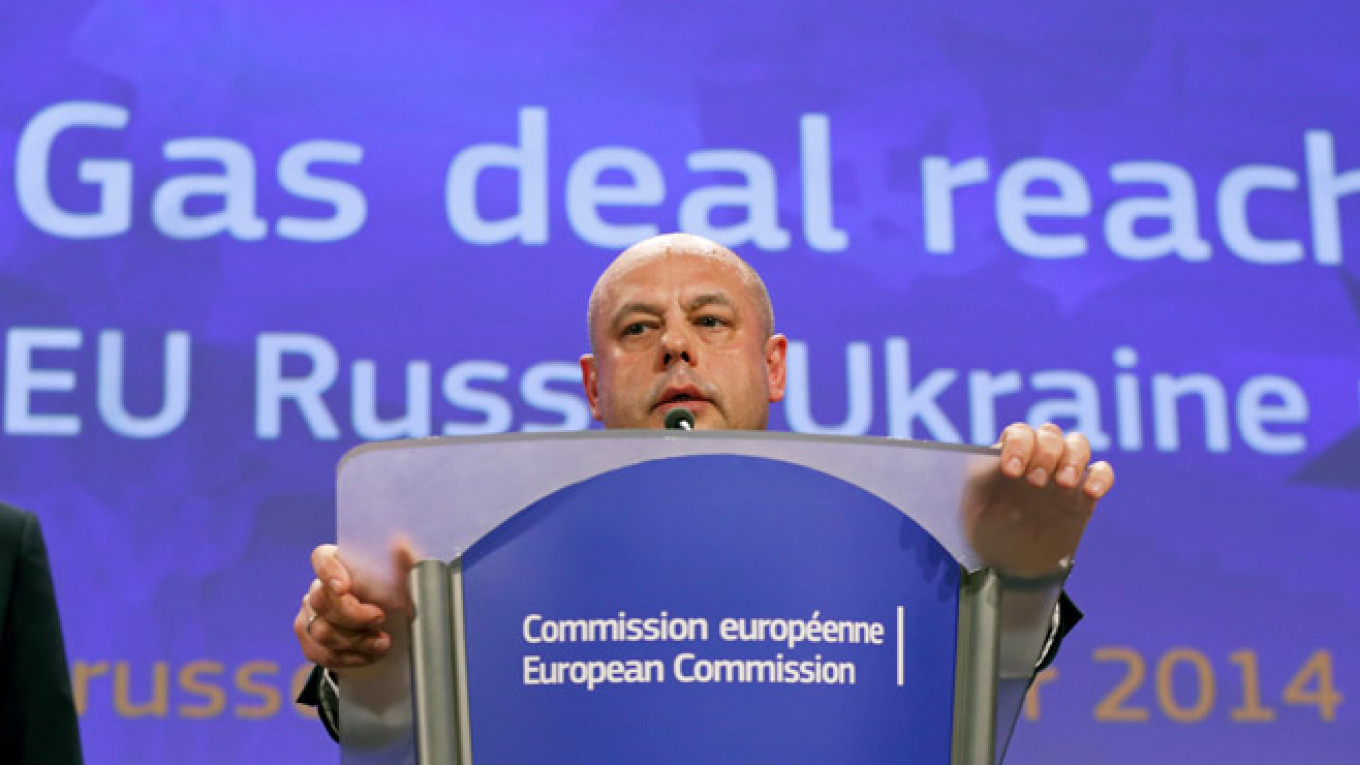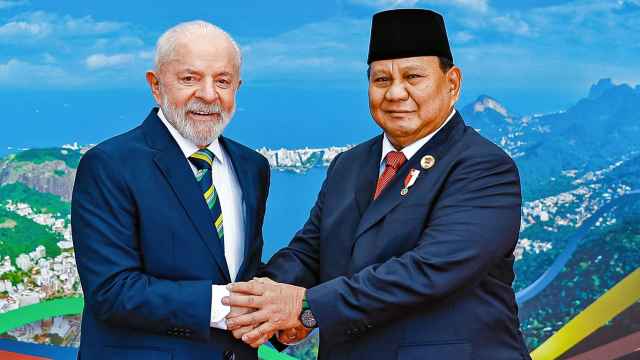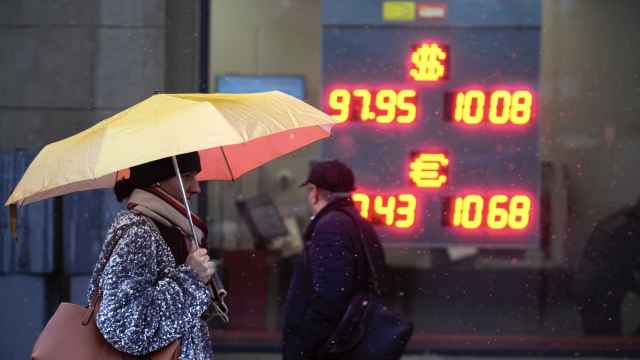Economic and political turmoil in Ukraine has already led to a significant reduction in energy intensity in the country. According to Ukraine's State Statistics Committee, from January to September, consumption of electricity fell by 5.8 percent and natural gas by 16.6 percent, compared with the same period last year.
The country nevertheless continues to depend on energy imports, and this trend is perceived by the current elites in Kiev as a major threat to national security. The energy import bill paid by national oil and gas company Naftogaz is indeed one of the most important internal economic and political challenges Ukraine faces. Almost all the proposed solutions have one common point: diversification of energy supplies and a shift away from dependence on Gazprom.
Improving energy efficiency and reducing energy intensity should be a key priority.
Kiev has already made several attempts to find alternative sources of supply — for example, via reverse flow — and is also mulling a liquefied natural gas (LNG) terminal option and even alternative pipeline routes. Due to the oversupply of natural gas in Europe, reverse flow offered this summer had competitive prices, but the volumes might not be stable and sufficient, especially during the winter months, and the price can go up as well. The examples of Poland and Lithuania show that new LNG contracts — even with lower spot prices — are more expensive than traditional pipeline supplies.
In November last year, Reuters reported that Lithuania would pay at least 10 percent more for Norwegian LNG than for Russian pipeline gas in 2015. Norwegian LNG will cost almost $400 per 1,000 cubic meters, while Gazprom's shipments cost about $40 less. Potential deliveries of LNG to the Black Sea ports of Ukraine will be even more expensive. One could therefore argue that these options are by far too costly and unrealistic, and Kiev is better off looking for a solution closer to home. Energy efficiency, conventional hydrocarbons and even renewables are Ukraine's largest sources of energy supply.
Improving energy efficiency and reducing energy intensity should be the key priority of Ukraine's energy policy. Improvement of energy efficiency is extremely important for the country, which imports up to 60 percent of its energy and is in dire need of affordable energy supplies to relaunch its economic and industrial growth. According to the World Energy Council, the energy consumption of Ukraine's GDP reached 0.47 million British thermal units last year, almost four times higher than the average within the Organization for Economic Cooperation and Development.
Ukraine's energy-saving potential could therefore be as much as 50 percent of its current energy intensity. While some policy measures were implemented by the previous governments, introduction of energy-saving and energy-efficiency measures had been effectively blocked by lobbies of domestic energy intensive industries. In the last five years, the energy intensity of Ukraine's economy decreased only by 3.5 percent — a meager result even if compared with rather modest progress made by neighboring Russia and Belarus.
Last year alone, the energy intensity of the Russian economy decreased by 5 percent. We should keep in mind that in the case of Ukraine, energy-efficiency measures are cheap. Improving the energy efficiency and energy savings both in the industrial and residential sectors could prove the best way to ensure Ukraine's energy security.
An increasing indigenous supply of energy is the second-largest additional source of domestic supplies. This could be done by increasing the rehabilitation of existing conventional hydrocarbon deposits and promoting an economically sustainable use of renewables. Ukraine has already taken some steps in the right direction. For example, the country has a set of generous "green" electricity tariffs introduced in 2009. Last year wind energy was at 0.113 euro per kilowatt hour, biomass 0.124 euro/kWh, and solar at 0.427 euro/kWh. There is currently a strong pressure to reduce the solar tariff and it is unclear whether in the present economic and political conditions, the Ukrainian government will be able to go ahead with its plans to expand the share of renewables to 11 percent.
Hydropower, biomass and wind will have its part of the "energy cake," especially if compared with (expensive) energy imports. On the other hand, rehabilitation of existing hydrocarbon deposits will definitely help to increase domestic oil and gas output. According to the conservative estimates made by BP, current reserves of gas will last at the current production rate for almost 34 years. Ukraine's reserves/production ratio is higher than those of many important mature gas-producing countries — such as Norway (18.8 years) and the Netherlands (12.4 years).
Despite high capital expenditure for new natural gas deposits — up to $200 per 1,000 cubic meters — domestic gas production can be increased if fiscal incentives are properly designed and managed. Right now the government is doing the opposite and has increased the tax burden by raising a subsoil fee for private producers.
These measures will not entirely cut Ukraine's dependency on Gazprom at least in the midterm future; they will improve the country's energy balance and will set a necessary foundation for an economic recovery. The political establishment in Kiev should also keep in mind that the energy reform is not only a function of relevant policy measures — it also depends on internal peace and stability in Ukraine. Only the peaceful resolution of internal tensions, which takes into account the interests of all regions and key parties, will re-establish confidence of investors in Ukraine's energy sector.
Danila Bochkarev is an energy expert based in Brussels.
A Message from The Moscow Times:
Dear readers,
We are facing unprecedented challenges. Russia's Prosecutor General's Office has designated The Moscow Times as an "undesirable" organization, criminalizing our work and putting our staff at risk of prosecution. This follows our earlier unjust labeling as a "foreign agent."
These actions are direct attempts to silence independent journalism in Russia. The authorities claim our work "discredits the decisions of the Russian leadership." We see things differently: we strive to provide accurate, unbiased reporting on Russia.
We, the journalists of The Moscow Times, refuse to be silenced. But to continue our work, we need your help.
Your support, no matter how small, makes a world of difference. If you can, please support us monthly starting from just $2. It's quick to set up, and every contribution makes a significant impact.
By supporting The Moscow Times, you're defending open, independent journalism in the face of repression. Thank you for standing with us.
Remind me later.






